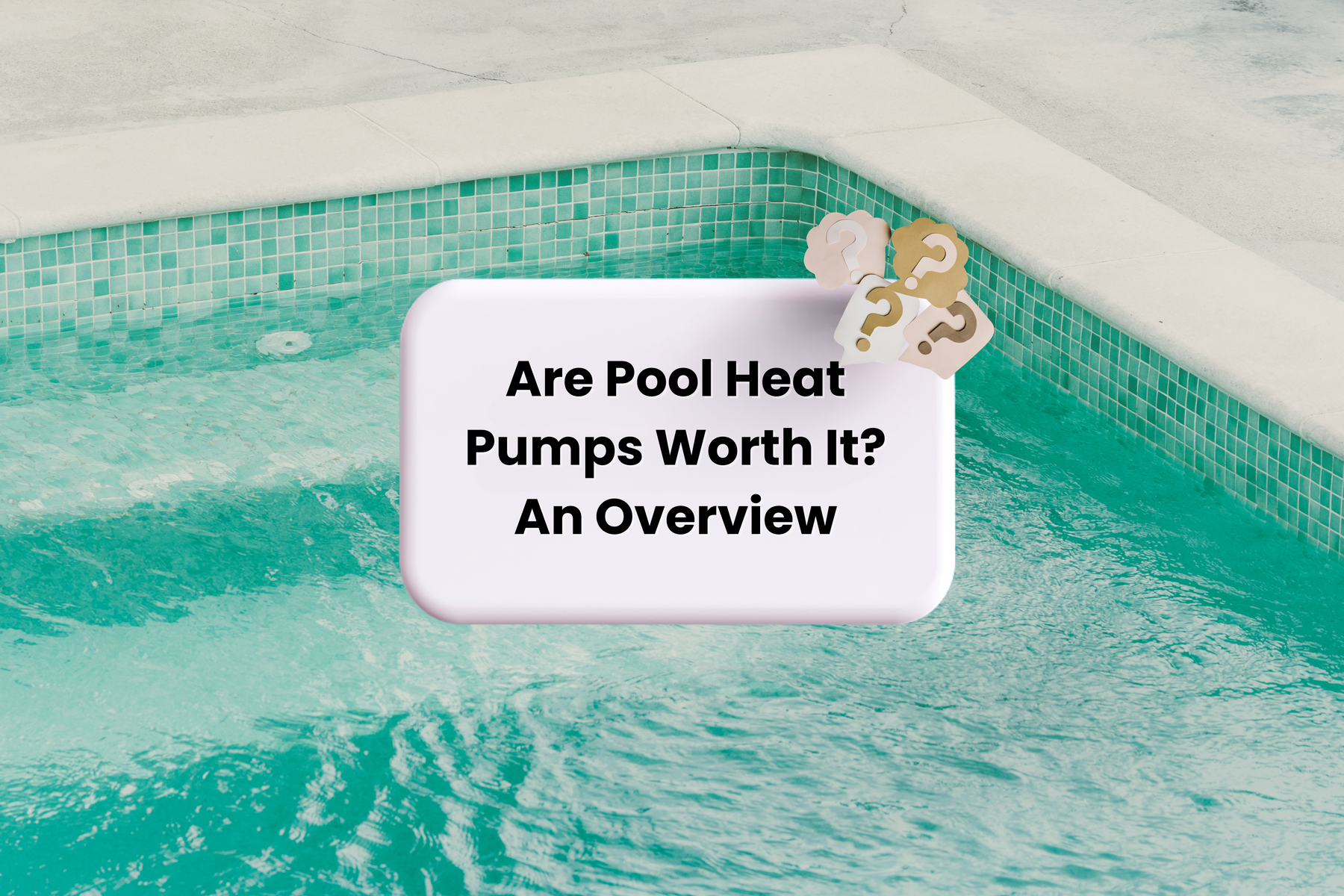
Are Pool Heat Pumps Worth It? An Overview
How Pool Heat Pumps Work and Their Efficiency
Pool heat pumps are energy-saving, eco-friendly, and built for long-term value. Curious how they work, what they cost, and if they’ll fit your pool life?
The Science Behind Heat Pump Operation
Heat pumps work kind of like a reverse air conditioner.
They don’t create heat from scratch. Instead, they pull warmth from the surrounding air and transfer it into your pool water. A fan draws in the air, which passes over coils filled with refrigerant. That refrigerant absorbs the heat, and after it’s compressed, it gets hot enough to warm your pool.
This process is slower than gas heating but much more energy-efficient. It works best when outside temps are above 50°F, but even cooler climates can benefit with proper insulation.
Understanding Coefficient of Performance (COP)
Pool heat pumps are rated by something called COP - Coefficient of Performance. This tells you how efficiently the unit converts electricity into heat.
A COP of 5 means you get five units of heat for every one unit of electricity used. Most quality pool heat pumps sit somewhere between 4 and 6. That’s way more efficient than gas heaters or standard electric ones.
So while it might take longer to heat your pool, you’re spending less money doing it.
Analyzing the Cost of Pool Heat Pumps
Initial Purchase and Installation Costs
Upfront, pool heat pumps can be a bit of a splurge.
Depending on your pool size and needs, most models cost between $3,000 and $5,000. For example, the FibroPool FH270 Pool Heat Pump is a solid option for medium-to-large pools and falls right into that range. Consider other trusted brands like AquaCal, GulfStream, and Hayward.
Installation costs vary, but budget another $300–$600 if you’re hiring a pro.
It’s a decent chunk of change upfront. But for year-round swimmers or anyone tired of bone-chilling water, it’s an investment that pays off.
Are Swimming Pool Heat Pumps Expensive to Run? (Addressing Operating Costs)
Here’s where heat pumps shine: low running costs.
Because they draw heat from the air, they use far less electricity than traditional resistance heaters. On average, expect to spend $300 to $500 per year on energy - much less than the $800 to $1,200 many spend with gas systems.
If your pool is well-insulated and you use a solar cover, you’ll get even more savings.
So while the upfront cost might be higher, the long-term cost of operation is much lower.
Key Advantages and Disadvantages of Pool Heat Pumps
Benefits of Investing in a Heat Pump (Are Pool Heat Pumps Any Good?)
If you swim often, heat pumps make pool time more comfortable without driving up your energy bill.
They’re efficient, quiet, and eco-friendly. Brands like AquaCal, Hayward, and GulfStream offer models that can last 10–15 years with regular care. Once you set your desired temp, they maintain it steadily, so you’re not constantly adjusting.
They also need little maintenance. Just clean the filter, keep the area clear for airflow, and check it once in a while.
Potential Downsides and Considerations
Like anything, there are trade-offs.
Heat pumps aren’t the fastest option. It might take a day or two to bring your pool up to temp, especially after a cold snap. If you need quick heat for weekend-only use, a gas heater might work better.
Also, they’re not ideal in areas that drop below 50°F often. The lower the air temperature, the harder the pump has to work.
And finally, installation space matters. Heat pumps need good airflow, so they can’t be boxed into tight corners or blocked by fences.
Related reading:



Leave a comment